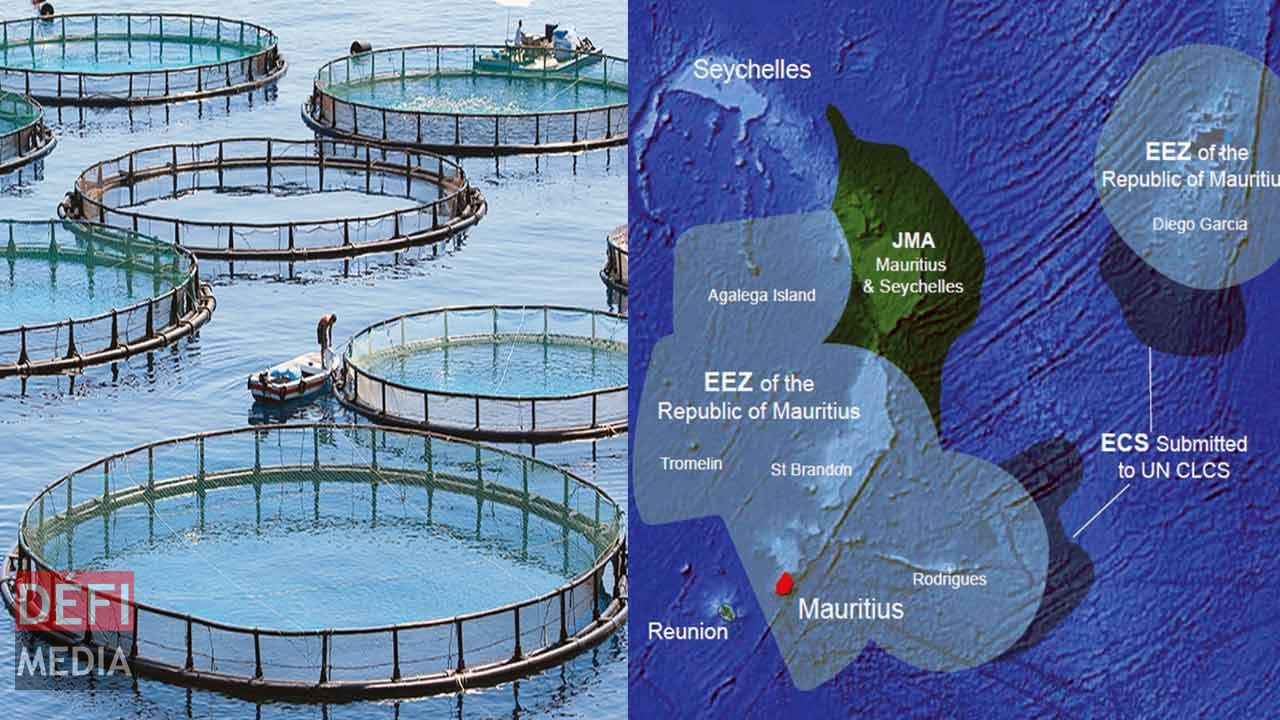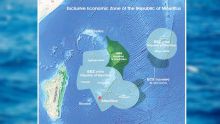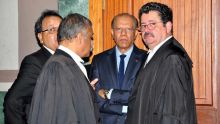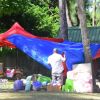
Mauritius has one of the largest Exclusive Economic Zones in the world. Last year, the United Nations approved an extension of the joint Mauritius-Seychelles continental shelf. This brings our EEZ to 2.3 million square kilometres. The economic potential of this area is largely untapped. The government envisions to make of ocean activities a new economic pillar.
The Chairperson of the National Ocean Council, Dr Sudesh Lallchand, explains that the ocean economy has immense potential to contribute to the country’s economy. “Those 2.3 million sq.km are a vast expanse and constitute a mostly unexploited resource. In this context, a Ministry of Ocean Economy, Marine Resources, Fisheries, Shipping and Outer Islands dedicated to ocean-related activities has been created. The government has consolidated the foundation by regrouping various institutions. Now, new developments will take place,” he says.
According to the Chairperson, ocean economy is gaining traction around the world. “USA’s blue economy is still weak, as it is still developing. When a new pillar emerges, there is a learning curve. We need to learn from the weaknesses of other countries.”
The sector is still in its infancy and will take 10 to 15 years to be fully operational. “For the time being, this sector will progress and continue to contribute to the country’s GDP. Being a new type of development, more technical help is needed.”
Four months back, the Ministry has signed an agreement with the Commonwealth Secretariat to develop a master plan on a National Ocean Policy Paper covering the next five years. Besides, a delegation of four persons visited Mauritius for working sessions and they will return in two months. They will make an action plan to develop this sector. Additionally, the World Bank is helping fisheries and aquaculture activities. The Japanese government has donated Rs 300 million to the Albion (fisheries) Research Centre.
Job creation
This blue economy can help in combating unemployment and poverty. “Currently, SC and HSC holders have less job opportunities. This new sector will help to bridge the gap through training offered at the Mauritius Maritime Training Academy (MMTA). Every year, around 30,000 ships pass through Mauritian waters on their way to Africa. But only 3,000 vessels call at Port-Louis. They do not stop at Port-Louis, as there is a lack of services like maintenance, bunkering, etc. So, there is a need for employees such as foremen and seamen.”
Mauritius can act as a crew changer agent. “A seaman cannot work more than one year on a ship. Crooning and manning can be a means to help reduce unemployment.” The MMTA is giving various courses lasting from 21 days to 2 years. The qualifications are internationally recognised allowing the people to work both on cruise ships and cargo ships. Earlier, the course was costly and the price has been reduced to Rs 4,000 only. Annually, Mauritius intends to produce around 2,500 to 3,000 seamen. Hence, Mauritius will be competing with India and the Philippines. “If we are able to send 4,000 seamen abroad each year, it will be a feat.” A seaman can expect to earn anything between Rs 30,000 to Rs 40,000 per month. Added to that, are free accommodation and food.
The different projects:
Deep Ocean Water Applications (DOWA) Dr Lallchand reveals that the government has already given permits to a Mauritian firm, Sotravic Ltd for a project at Bain de Dames. This consists of pumping deep-sea water off the coast to be used as a cooling agent for offices in Port Louis. This water is very cold at approximately 5 degrees Celsius. Normally, DOWA capitalises on the coldness and nutrient rich properties of deep sea water to develop a series of commercial activities which can be categorised as either upstream or downstream. Upstream refers to the extraction and sale of deep sea water as well as the production of green cooling or other energy conservation and production technologies. Downstream activities include premium products such as high-end aquaculture and seaweed culture, cosmetics and pharmaceuticals, agrochemicals, water bottling and thalassotherapy, among others. Bottled fresh water The water extracted from such depths can be bottled as it is very fresh and exported. Seaport-related activities The Mauritian Shipping Corporation will have an enhanced role and has recently commissioned a second ship. “The government is willing to revive maritime trade. A new ship will be built to develop trade in the Indian Ocean. Mauritius is the gateway between Asia and Africa. Maritime trade will help develop a trade route between Mauritius and Africa.” The country also plans to become a stopover for ships passing through its territorial waters. Necessary services will be provided to encourage shipping vessels to call at our port. Crooning and manning services are being set up. Marine Renewable Energies The trend nowadays is green energy with lesser pollution. For him, the sea can be used to source renewable energies like tidal and wind energies. “When wind turbines are placed on land, they create noise pollution. But when these machines are set up in the sea, there will be no disturbance. There is a need for investment.” Fishing, Seafood processing and aquaculture Around 30 sites for the set-up of in-lagoon fish breeding have been identified around the island. The government is targeting both big and small investors. Farming of high-value and niche products such as seaweed, oyster and oyster pearls, crabs, sea-urchins and other shellfish are also being encouraged. Dr Lallchand explains that it is important to know what kind of mineral exists in the ocean. Seabed exploration for hydrocarbons and minerals According to Dr Lallchand, the Mauritius Oceanographic Institute has been playing a passive role over the years, putting much emphasis on academic research. Things will change, the Institute will be carrying intensive research on our territorial waters, currents and migration patterns of fish. “MOI has become a technological instrument and will actively participate in this sector. They will identify most suitable places for aquaculture and what type of aquaculture we can invest in.” Exploration of the seabed is also important. “There are already many countries willing to explore the seabed of our territorial waters. So there is much work to be done, like the setting of proper legislation and framework.”
Notre service WhatsApp. Vous êtes témoins d`un événement d`actualité ou d`une scène insolite? Envoyez-nous vos photos ou vidéos sur le 5 259 82 00 !






















